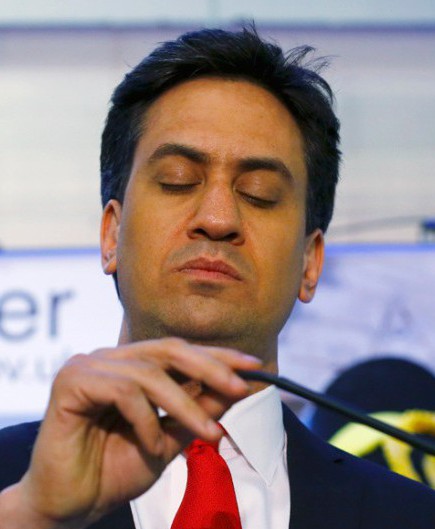![]()
By Lorenzo Genito
The results of the 2015 UK general election, although unexpected, are pretty clear. Among the biggest losers are the Liberal Democrats, whose parliamentary representation was slashed from 57 to only 8 seats. The UK Independence Party (UKIP), despite having obtained excellent results in some constituencies, has ended up with only 1 seat. The winners of this election are, first and foremost, the Tories, who managed to score a small yet sufficient majority in the Commons. There was no doubt that they were going to be the night’s biggest winner, even if early predictions proved overly conservative. The party that shocked everyone the most was the Scottish National Party (SNP), who did as well as the most optimistic polls had expected. Gaining ground in a number of formerly safe Labour and Liberal Democratic constituencies, the SNP won 56 out of 59 Scottish seats.
Finally, there is the Labour Party. Ed Miliband’s ‘disappointing and difficult night’ largely reflects the disappointing and difficult situation in which Labour finds itself within the UK political landscape. As pointed out in an earlier Katoikos.eu post, one of the central themes of this election was the question of economic management. The Tories have been extremely successful in tailoring a narrative of how Labour’s mismanagement of the economy increased government spending during the previous Parliament, therefore calling upon the Tories to ‘clean up the mess.’ A very compelling story which, conveniently, largely ignores the Tories’ support of the Labour-led 2008 bank bailout. Seeking to calm the economic woes of the financial crisis, the bailout package added £500 billion to the budget deficit.
The Tories have been extremely successful in tailoring a narrative of how Labour’s mismanagement of the economy increased government spending during the previous Parliament
The Labour Party’s greatest misstep was probably being too apologetic about it, conceding to the Conservatives’ narrative without developing an alternative story. When it comes to the core economic and immigration policies, Labour failed to offer an alternative during this election and limited itself to simply endorsing a less harsh version of whatever the Tories were offering. Just like the Tories, Labour promised a fiscal and economic plan that did not imply additional borrowing. Labour did not dare to position itself against a balanced budget, and austerity in general; it even aimed to achieve a budget surplus. The belief in a balanced budget and austerity as the only possible policy options in the aftermath of the crisis has been a dominant discourse in Europe for more than half a decade. It is a political platform that has pinned Labour down under its weight, with the party unable, or unwilling, to break free.
Similarly, on immigration, Labour followed the Tories’ lead in promising that measures would be taken to implement a waiting period for EU immigrants before being eligible to claim benefits. The difference was simply the number of years proposed by each party, with the Tories advocating for four and the Labour, two.
Austerity was the only possible policy option in the aftermath of the crisis and it pinned Labour down under its weight, with the party unable, or unwilling, to break free.
More profoundly, though, this election’s results reflect a much deeper crisis within the Labour Party: the ability to put forward a concrete alternative to the Tories. Since Tony Blair led the Labour Party’s rightward shift in the mid-1990s, Labour has abandoned any direct affiliation with socialism, and began defining itself as a party with more liberal, social democratic values. This shift was also implemented symbolically by replacing the famous Clause IV of the Labour Party’s Constitution, initially based upon socialist and Marxist ideas, such as the reference to the ‘common ownership of the means of production, distribution and exchange.’ New Labour’s distancing from socialism, while promoting the co-existence between capitalism and social democracy, was among the reasons that enlarged Blair’s electoral support and allowed 10 continuous years of Labour rule.
However, like many other centre-left parties, Labour has slowly found itself in a difficult position to reconcile the social democratic elements of the Third Way against the global, or at least pan-European, shift to right-wing politics in terms of macroeconomic governance. This has increasingly become the case, especially in the aftermath of the eurozone crisis. In this respect, who could be better, or at least more credible, at cutting public spending? A centre-left party retaining commitments to preserve the scope of the welfare state and to overcome inequalities of wealth distribution? Or a right-wing party that has been campaigning for reducing welfare expenses and clamping down on debt since its inception?
Despite Ed Miliband’s taking a number of steps forward to leave Blair’s and Brown’s Third Way behind, Labour’s 2015 campaign manifesto has clearly shown that divergence from the Tories on key policy proposals was not sufficient.
So what’s Left for Labour?
The failure of the Labour Party to propose credible alternatives to the Tories should be seen in the context of its ideological crisis, whereby the question of what concretely represents left-wing politics seems to have been left unanswered. For Labour to return to government while retaining a left-oriented manifesto will require fully re-embracing its socialist roots. If policy alternatives to the current government are to be found, they will not be at the right-wing end of the spectrum. The Tories are already much better at it.
The question has increasingly become, especially in the aftermath of the eurozone crisis: Who could be better, or at least more credible, at cutting public spending?
Labour will now necessarily have to go through a phase of reflection, during which the party’s new direction must be decided. This could be a chance for the party to collectively rediscover its socialist foundations, and to propose concrete alternatives to the status quo. Yet, as Miliband hands in his resignation, some commentators and other members of the Labour Party attribute its failure, in part, to an exaggerated tilt “to the left,” which seems to be a call for future party leaders to stay closer “to the centre.” However, it could easily be said that Miliband’s biggest failure was having not tilted enough.
Remaining closer to the centre will simply continue to leave the electorate unconvinced about Labour’s abilities to not only define its identity within the left, but also offer substantially different proposals in key policy areas. In a political arena wherein the Tories have been so successful in developing such a strong narrative from the right, a different, more compelling story has to come from the very opposite side of the political spectrum.
For Labour to be a concrete political alternative to the Tories, then, it has to do so by starting from the very foundation of politics: ideology.
Lorenzo Genito is a PhD student at the University of Warwick. His research interests lie within the field of International Political Economy and his current project aims at understanding the discursive construction of the financial markets’ mechanisms.



